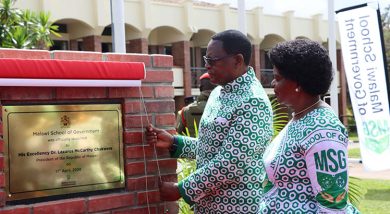Tanzania presses for half of Lake Malawi
 Malawi’s Foreign Affairs and International Cooperation Minister Ephraim Chiume on Friday said Tanzania is pressing for half of Lake Malawi, a demand he said is in conflict with an 1890 treaty that gave the whole lake to Malawi.
Malawi’s Foreign Affairs and International Cooperation Minister Ephraim Chiume on Friday said Tanzania is pressing for half of Lake Malawi, a demand he said is in conflict with an 1890 treaty that gave the whole lake to Malawi.
Chiume said this at a media conference in Lilongwe.
“The government of the United Republic of Tanzania believes that the border should be along the middle of Lake Malawi.
“They base their argument on common international law whereby in situations where two countries are separated by a body of water, the border is along the middle of that body of water,†said Chiume.
He said the legal principle on which Tanzania is basing its argument is not applicable because there is already an 1890 Heligoland Treaty signed by the two countries’ colonial rulers allocating the whole lake to Malawi.
“The border between the two countries was defined in the Heligoland Treaty signed by Germany and Britain who were the colonial rulers at that time, on 1st July 1890.
“The Heligoland Treaty defined the border between the two countries as being the edge of the waters on eastern shore of Lake Malawi.
“Furthermore, the Heads of State and Government of the Organisation of African Unity (OAU) made a resolution in 1963 that member states should recognise and accept the borders that were inherited at the time of independence.
“The African Union (AU) made similar resolutions in 2002 and 2007,†said Chiume.
He said the two countries are currently negotiating to resolve boundary disagreement between the two countries on the lake.
“From the Heligoland Treaty and the OAU/AU resolutions, it is Malawi Government’s conviction that the border still remains the eastern shores of Lake Malawi.
“Government wishes to assure the nation that this should not be a cause for anxiety or alarm,†said the minister, dispelling reports of rising tension between the two countries.
The issue of border disagreement between Malawi and Tanzania over the lake has come in the spotlight after Malawi intensified efforts to explore for oil in the lake.
The dispute dates back to the colonial era but gained fresh momentum last year when government awarded Surestream Petroleum a licence to prospect for oil on the lake.





